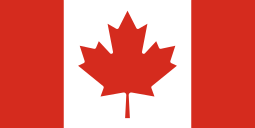Overview of the Program
Pursuing a Bachelor of Finance and Accounting in Canada provides international students with a range of benefits. Canada is recognized for its exceptional education system, inclusive society, and thriving financial industry. By studying finance and accounting in Canada, students develop a strong understanding of financial management, accounting principles, and business operations, preparing them for prosperous careers in fields such as finance, accounting, banking, and consulting. Here are the main advantages and specifics of studying Bachelor of Finance and Accounting in Canada.
Why Choose Canada for Bachelor of Medicine?
High-Quality Education: Canadian universities and colleges are renowned for their high academic standards and rigorous programs. The Bachelor of Finance and Accounting programs in Canada are designed to provide students with a comprehensive understanding of financial management, accounting principles, and related business concepts. The curriculum is regularly updated to align with industry demands, ensuring graduates are well-prepared for the workforce.
Global Recognition: A degree from a Canadian institution holds global recognition and is highly regarded by employers worldwide. Canadian universities consistently rank among the top institutions globally, demonstrating the quality and reputation of their finance and accounting programs.
Strong Financial Sector: Canada is home to a robust and stable financial sector. Major cities such as Toronto, Vancouver, and Montreal are financial hubs that attract leading financial institutions, investment banks, accounting firms, and multinational corporations. Studying finance and accounting in Canada provides students with access to industry leaders, networking opportunities, and potential internship placements.
Internship and Co-op Opportunities: Many Canadian universities offer internship and co-op programs as part of their finance and accounting curriculum. These programs provide students with valuable hands-on experience, allowing them to apply their knowledge in real-world settings. Internships and co-op placements also offer opportunities to build professional networks and gain practical skills, enhancing students’ employability upon graduation.
Multicultural Environment: Canada is known for its multicultural society and diverse student population. Studying finance and accounting in Canada allows students to interact with peers from different cultural backgrounds, fostering a global perspective and cross-cultural understanding. This multicultural environment prepares students to work effectively in diverse teams, a valuable skill in today’s global business landscape.
Access to Professional Designations: Canadian finance and accounting programs often align with the curriculum requirements for professional designations such as Chartered Professional Accountant (CPA), Certified Financial Analyst (CFA), and Chartered Financial Analyst (CMA). By completing a Bachelor of Finance and Accounting in Canada, students can fulfill some of the prerequisites for these professional designations, setting them on a path towards advanced certifications and career advancement.
Program Structure and Duration
The Bachelor of Finance and Accounting programs in Canada typically have a duration of four years for full-time study. However, the program duration may vary depending on the institution and any co-op or internship components. Some universities also offer accelerated programs or the option to complete the degree in less time through intensive study.
The program structure generally consists of core finance and accounting courses, elective courses, and experiential learning opportunities. Core courses cover fundamental topics such as financial accounting, managerial accounting, corporate finance, investment analysis, financial planning, taxation, and business law. Elective courses allow students to specialize in specific areas of finance and accounting, such as risk management, auditing, international finance, or financial analysis.
Experiential learning is often incorporated into the program through case studies, simulations, group projects, and internships. These practical experiences provide students with real-world exposure and help develop critical thinking, problem-solving, and communication skills.
Admission Requirements
Admission requirements for Bachelor of Finance and Accounting programs in Canada may vary among institutions. However, the following are common eligibility criteria:
Academic Qualifications: Students must have completed secondary education with a high school diploma or an equivalent qualification. Specific academic requirements, including minimum grades and prerequisite courses, vary among universities.
English Language Proficiency: Proficiency in the English language is essential for international students. Most universities require English language proficiency test scores, such as IELTS or TOEFL. The minimum score requirements may vary, and students should check the specific requirements of the institutions they are applying to.
Personal Statement or Essay: Some universities may require students to submit a personal statement or essay outlining their interest in finance and accounting, career goals, and relevant experiences. This allows the admissions committee to assess the student’s motivation and suitability for the program.
Letters of Recommendation: Some universities may request letters of recommendation from teachers or mentors who can attest to the student’s academic abilities, character, and potential for success in the program.
Resume or Curriculum Vitae: A resume or curriculum vitae highlighting the student’s academic achievements, extracurricular activities, work experience, and any relevant accomplishments may be required.
Prospective students are encouraged to review the specific admission requirements of the universities they are interested in, as they may have additional criteria or variations in the application process.
Dear Nepali Students, Contact Goreto Educational Consultancy, recognized as the best consultancy in Nepal for Canada to flash your future. Goreto will help you in every step of your educational journey from Nepal to Canada.
Top Universities in Canada Offering Bachelor of Medicine
University of Toronto: The Rotman School of Management at the University of Toronto offers a Bachelor of Commerce program with a specialization in Finance and Accounting. The program provides a strong foundation in finance and accounting principles and offers diverse elective courses to tailor the education to students’ interests.
Western University: The Ivey Business School at Western University offers a Bachelor of Arts in Honors Business Administration program with a specialization in Finance. The program emphasizes a case-based learning approach and provides opportunities for experiential learning through internships and real-world projects.
McGill University: The Desautels Faculty of Management at McGill University offers a Bachelor of Commerce program with a concentration in Finance. The program combines core business courses with finance-specific courses, providing students with a comprehensive understanding of finance principles and practices.
Scholarships and Financial Aid Options
Canadian universities and colleges offer scholarships, grants, and financial aid options for international students pursuing a Bachelor of Finance and Accounting degree. These scholarships may be merit-based, need-based, or a combination of both. Some scholarships are specifically designed for international students, while others are open to both domestic and international students. It’s essential for students to research and explore scholarship opportunities offered by the universities they are applying to, as well as external scholarships provided by government organizations, private foundations, and corporations.
The application process for scholarships may vary, and students should pay attention to the eligibility criteria, application deadlines, and required documents. Common requirements for scholarship applications include academic transcripts, letters of recommendation, personal statements, and sometimes interviews or additional essays. Students are encouraged to contact the scholarship offices or international student advisors at their chosen institutions for further information and guidance on scholarship opportunities.
Student Visa Process
International students who plan to study Bachelor of Finance and Accounting in Canada typically need a study permit. To obtain a study permit, students must first receive an acceptance letter from a designated learning institution (DLI) in Canada that offers the program. The acceptance letter is required as part of the study permit application.
Once students have the acceptance letter, they can apply for a study permit through the Immigration, Refugees and Citizenship Canada (IRCC) website or at the nearest Canadian visa office in their home country. The study permit application requires filling out the appropriate forms, paying the application fee, and providing supporting documents, including the acceptance letter, proof of financial support, a valid passport, evidence of English language proficiency, and any other requirements specified by the IRCC.
It’s crucial for students to familiarize themselves with the specific study permit requirements and guidelines provided by the IRCC to ensure a smooth and successful application process.
Career Opportunities
Graduates with a Bachelor of Finance and Accounting degree in Canada have a wide range of career opportunities available to them. They can pursue careers in finance, accounting, banking, consulting, investment management, financial analysis, and more. The finance and accounting sector in Canada offers abundant job prospects, with opportunities in financial institutions, corporations, government organizations, consulting firms, and accounting firms.
Some graduates choose to work for multinational corporations, while others prefer to work for small and medium-sized enterprises (SMEs) or start their own businesses. Additionally, graduates can pursue professional certifications such as Chartered Professional Accountant (CPA), Chartered Financial Analyst (CFA), or Certified Management Accountant (CMA) to enhance their career prospects and open doors to specialized roles or senior positions.
Moreover, some graduates may choose to pursue further education or advanced degrees such as a Master’s in Business Administration (MBA) or a Master’s in Finance (MFin) to deepen their knowledge and skills in finance and accounting. These advanced degrees can lead to more senior and specialized positions within the field.
In summary, studying Bachelor of Finance and Accounting in Canada offers international students access to top-tier educational institutions, a supportive and multicultural environment, practical learning opportunities, abundant career prospects, and the potential for further specialization and advancement. With a Bachelor of Finance and Accounting degree from Canada, graduates are well-equipped to succeed in the global business and finance industry.
How Goreto Education Consultancy Can Help
At Goreto Education Consultancy, we understand the unique needs and aspirations of students seeking to pursue a Bachelor of Finance and Accounting degree in Canada. Our experienced consultants provide personalized guidance and support throughout the entire application process, ensuring that students make informed decisions and maximize their chances of securing admission to their desired institutions.
Goreto Education Consultancy offers a comprehensive range of services to assist students with their journey of studying Bachelor of Finance and Accounting in Canada. Our services include university selection, where we help students identify and choose reputable Canadian institutions that align with their academic goals and career aspirations. We also provide support with the application process, including assistance with document preparation, application submission, and communication with universities.
Furthermore, we offer guidance on scholarships and financial aid options available to international students, helping students explore opportunities to offset the cost of their education. Our team is well-versed in scholarship requirements and application processes, providing valuable insights and support throughout the scholarship application journey.
By choosing Goreto Education Consultancy, the best consultancy in Nepal for Canada, students can benefit from our expertise, personalized attention, and commitment to their success. We strive to make the process of studying Bachelor of Finance and Accounting in Canada a smooth and rewarding experience for every student we work with. Contact Goreto, the best consultancy in Nepal for Canada, today to begin your journey towards a thriving career in the Canadian financial sector.


